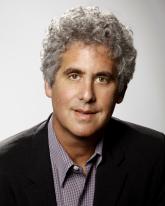The recent arrest of Justin Nojan Sullivan, a 19-year-old from North Carolina, illustrates the psychology of a “wannabe” terrorist, showing tendencies of a glory seeker and lonely romantic. He had grandiose aspirations and reportedly talked of killing up to 1,000 Americans by using guns, bombs, and chemical weapons. He planned to recruit others to the “Islamic State of North America.” In an email to an undercover agent, he said: “Our attacks need to be as big as possible … we can do minor assassinations before the big attack ....” He wanted to make a video of some of the killings and send them to the terrorist group, seeking to impress ISIS with his elaborate plan. His plans were cut short when his father called the police with concerns about his son’s change in behavior.
Familial intervention by Alex’s grandmother was instrumental in preventing her from traveling overseas to fulfill her goal of supporting the Islamic State by helping to bear the next generation of fighters. Alex embodied the features of a lonely romantic with altruistic justifications. She did not exhibit outwardly noticeable changes in appearance or attitude, as she was instructed to lead a double life, which included her continuing to teach Sunday school throughout her online radicalization. Her grandmother became concerned over the amount of time Alex was spending on social media and contacted the FBI.
A recent study by Fordham Law School’s Center on National Security, in New York, showed an increase in individuals wishing to conduct attacks in the United States, although most still seek to become foreign fighters for ISIS. As author Gabriel Weimann recently observed, these people are not truly lone wolves, as social media provides a coherent attractive message to these lonely, isolated individuals who feel a sense of belonging to the virtual community of hatred. An absorption in radical social media is increasingly the pathway to joining the virtual community of hatred, and this is a daunting challenge for counterterrorism.
Dr. Post is the founding director of the political psychology program at the Elliott School of International Affairs, The George Washington University, Washington. He is the author of “The Mind of the Terrorist” (New York: Palgrave Macmillan, 2008). Mr. McGinnis, a former Air Force intelligence, surveillance, and reconnaissance operator, is a doctoral candidate in clinical psychology at the university. Dr. Moody, a graduate of the program, is a forensic psychologist in the federal prison service. Ms. Zayas is Dr. Post’s director of research and has a master of arts in security policy studies from the university.
*This story was updated 7/24/2015.
